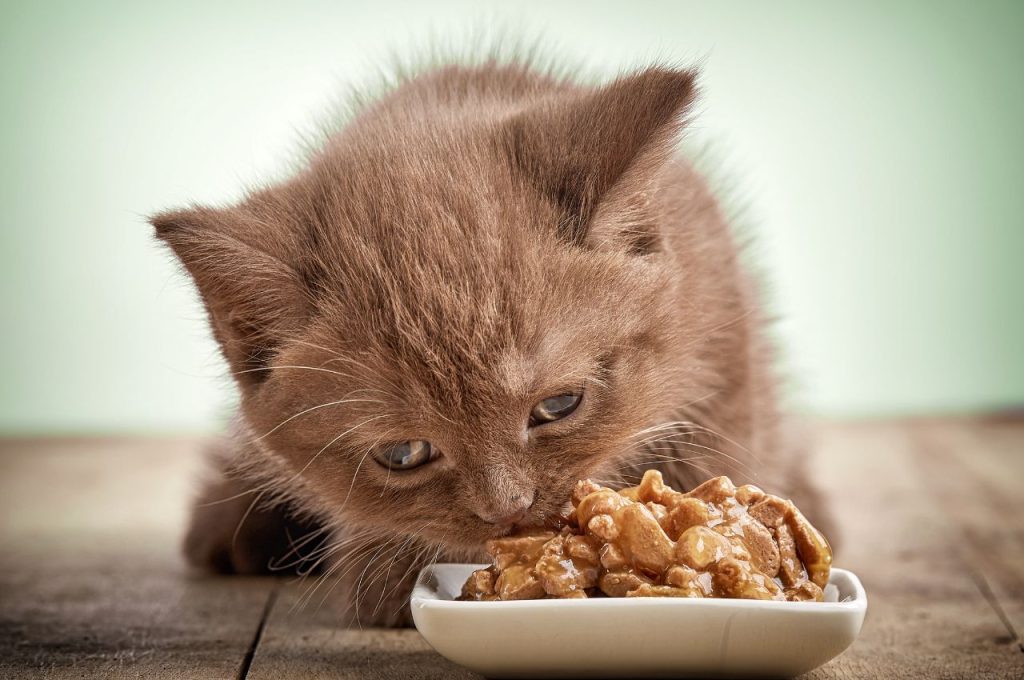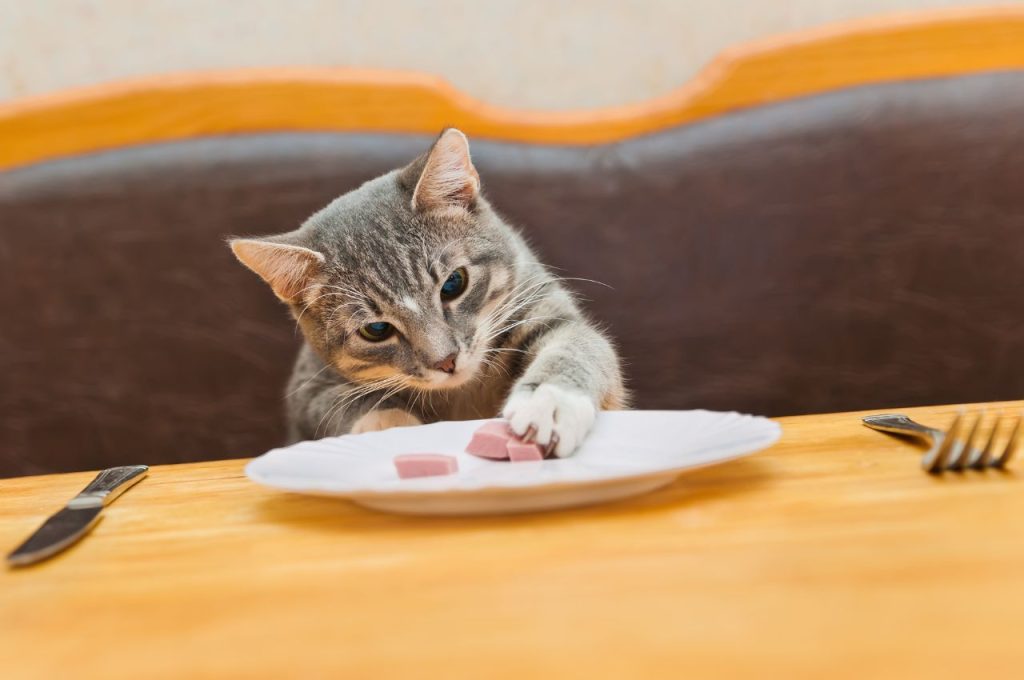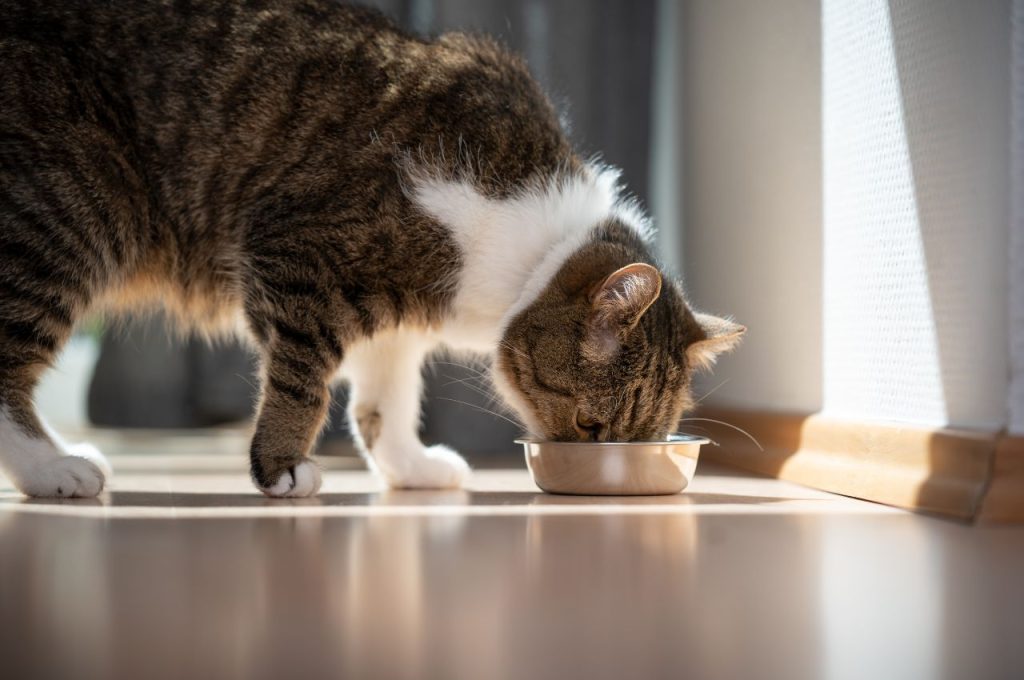If you’re looking to help your cat gain weight, consider making homemade cat food. A professional-grade recipe can ensure your feline friend gets the right nutrients. Include ingredients like lean meats, such as chicken or turkey, mixed with high-calorie options like liver or eggs. Add a small amount of healthy fats, such as fish oil or coconut oil, to boost calorie content. Consult with a veterinarian to develop a balanced and customized recipe based on your cat’s specific needs.
When it comes to the health and well-being of our feline friends, weight management plays a crucial role. Surprisingly, homemade cat food can be a great solution for cats looking to gain weight.
Made with carefully selected ingredients tailored to meet a cat’s nutritional needs, homemade cat food provides a higher calorie content compared to commercial options. By customizing the ingredients and portion sizes, you can ensure that your cat gets the necessary nutrients and calories to achieve a healthy weight. This approach not only allows you to have control over the quality of ingredients but also guarantees a balanced diet for your feline companion.
Homemade Cat Food to Gain Weight
Feeding your cat a balanced and nutritious diet is crucial for their overall health and well-being. While some cats may struggle with weight management, others may need to gain weight due to various reasons such as illness, surgery, or simply being underweight. In such cases, homemade cat food can be a great solution to help your feline friend pack some extra pounds in a healthy and controlled manner.

Commercial cat foods often prioritize weight loss and maintenance, which means they may not provide the necessary calorie and nutrient content needed to help a cat gain weight. Making your cat food allows you to have better control over the ingredients and nutrient composition, ensuring that your cat gets the right balance of proteins, fats, and carbohydrates to support healthy weight gain.
When preparing homemade cat food for weight gain, it’s essential to consult with your veterinarian to understand your cat’s specific nutritional needs. They can guide you in terms of appropriate recipes, portion sizes, and supplements if needed. It’s important to note that weight gain should always be done in a gradual and controlled manner to avoid any health complications. With proper planning and attention to detail, homemade cat food can be a safe and effective way to help your cat reach a healthy weight.
For more information on how to make homemade cat food, check out this helpful guide on creating balanced and nutritious meals for your feline companion.
Choosing the Right Ingredients for Homemade Cat Food
When it comes to preparing homemade cat food for weight gain, selecting the right ingredients is crucial. The following are some key considerations for choosing ingredients:
Proteins
Proteins are essential for muscle growth and development, making them a vital component of homemade cat food for weight gain. Opt for high-quality protein sources such as lean meats like chicken, turkey, or fish. These meats should be cooked thoroughly to ensure they are safe for your cat to consume. Avoid using processed or seasoned meats, as they may contain additives and preservatives that can be harmful to cats. Additionally, you can include eggs and dairy products as alternative protein sources.
To provide a balanced amino acid profile, consider incorporating a variety of protein sources into your cat’s diet. This helps ensure they receive all the essential amino acids necessary for healthy weight gain. However, keep in mind that certain proteins, such as fish, should be limited due to potential mercury or other contaminants.
In consultation with your veterinarian, determine the appropriate amount of protein to include in your cat’s meals based on their specific needs. The quantity should align with their weight gain goals and overall health condition.
Fats
Fats are a concentrated source of calories and play a crucial role in helping cats gain weight. Opt for healthy fats such as omega-3 and omega-6 fatty acids, which can be found in fish oil, flaxseed oil, and certain types of fish. These fats not only provide essential nutrients but also support a healthy coat and skin.
When using fats in homemade cat food, moderation is key. While fats are important for weight gain, excessive amounts can lead to obesity and other health issues. Consult with your veterinarian to determine the appropriate quantity of fats to include in your cat’s diet.
Carbohydrates
Carbohydrates are another important component of homemade cat food for weight gain. They provide energy and can help increase calorie intake. Choose complex carbohydrates like sweet potatoes, brown rice, or whole grains, as they offer more nutritional value compared to simple carbohydrates like white rice or wheat flour.

It’s essential to note that cats have a limited ability to digest carbohydrates, so it’s important to include them in moderation. Carbohydrates should not make up the majority of your cat’s diet but should be included as a supplement to the protein and fat content.
Remember to consult with your veterinarian to determine the appropriate amount and type of carbohydrates to include in your cat’s meals based on their individual needs and dietary preferences.
Preparing Homemade Cat Food for Weight Gain
Once you have gathered the right ingredients, it’s time to prepare homemade cat food for weight gain. Follow these steps to ensure a balanced and nutritious meal:
1. Recipe Selection
Choose a cat food recipe that is specifically designed for weight gain. You can find numerous recipes online or consult with your veterinarian for personalized recommendations. It’s important to follow a recipe that provides the correct balance of proteins, fats, and carbohydrates to ensure your cat’s nutritional needs are met.
Consider the portion sizes recommended in the recipe to avoid overfeeding your cat. Gradual weight gain is healthier than rapid weight gain, so it’s important to portion the meals accordingly.
2. Preparation and Cooking
Follow the recipe instructions carefully, ensuring that all ingredients are cooked thoroughly to eliminate potential foodborne illnesses. Remember to remove bones, skin, and excess fat from meats before preparation.
If your cat has any dietary restrictions or allergies, be sure to make appropriate substitutions or omit ingredients that may cause adverse reactions.
3. Meal Storage
Once the homemade cat food is prepared, divide it into individual meal-sized portions to make feeding easier. Store the portions in airtight containers in the refrigerator to maintain freshness. Avoid keeping the food for too long, as homemade cat food typically has a shorter shelf life than commercially prepared options.
When serving the food to your cat, ensure that it is at room temperature for optimal taste and to prevent any discomfort or digestive issues.
4. Feeding Routine
Establish a regular feeding routine for your cat, incorporating homemade cat food into their daily meals. It’s important to monitor their weight and overall health during this time to ensure that the weight gain is gradual and healthy.

Consult with your veterinarian to determine the appropriate feeding schedule and portion sizes based on your cat’s weight gain goals and activity level.
Remember to always have fresh water available for your cat to stay hydrated throughout the day.
Frequently Asked Questions
In this section, we will address some common questions about homemade cat food to help your feline friend gain weight.
1. How can homemade cat food help my cat gain weight?
Homemade cat food can be beneficial in helping your cat gain weight because it allows you to control the ingredients and ensure that your cat is receiving a nutrient-rich diet. When preparing homemade cat food, you can include ingredients that are high in calories and healthy fats, which can help your cat pack some extra pounds. Additionally, homemade cat food can be tailored to meet your cat’s specific dietary needs, ensuring they are getting the nutrients they need to support weight gain healthily.
However, it’s important to consult with your veterinarian or a veterinary nutritionist before switching to homemade cat food to ensure that you are providing a balanced and complete diet for your cat’s specific needs. They can guide you in selecting the right ingredients and ensuring that your cat’s nutritional requirements are being met.
2. Can homemade cat food include high-calorie ingredients?
There are several high-calorie ingredients you can include in homemade cat food to help your cat gain weight. Some examples include:
– Lean meats like chicken or beef
– Cooked eggs
– Fish such as salmon or mackerel
– Healthy fats like olive oil or coconut oil
These ingredients provide additional calories and essential nutrients that can support weight gain in cats. It’s important to ensure that these ingredients are cooked properly and any bones or potential hazards are removed.
3. How often should cats be fed homemade food to gain weight?
The frequency of feeding homemade cat food to help your cat gain weight will depend on their specific needs and preferences. In general, it’s recommended to feed adult cats two to four meals per day. However, it’s important to consult with your veterinarian to determine the appropriate feeding schedule for your cat.
When trying to help your cat gain weight, you may need to increase the portion sizes or provide additional meals throughout the day. Your veterinarian can guide you in determining the right amount of food and feeding schedule to support weight gain while maintaining your cat’s overall health.
4. Risks of homemade cat food for weight gain?
While homemade cat food can be a beneficial way to help your cat gain weight, some risks need to be considered. One of the main risks is providing an unbalanced or incomplete diet, which can lead to nutritional deficiencies. It’s important to ensure that your homemade cat food recipe is formulated to meet your cat’s specific nutritional needs, including essential vitamins, minerals, and amino acids.
Additionally, improper storage or handling of homemade cat food can increase the risk of bacterial contamination, which can lead to foodborne illnesses. It’s crucial to follow proper food safety practices when preparing and storing homemade cat food to minimize these risks.
Conclusion
Homemade cat food can be a beneficial option for helping your cat gain weight in a healthy and controlled manner. By selecting the right ingredients, preparing balanced meals, and monitoring your cat’s progress, you can provide a nutritious and customized diet that supports their weight gain goals. Remember to consult with your veterinarian for personalized guidance and recommendations based on your cat’s specific needs and health condition.
For more tips and information on caring for your cat’s nutritional needs, visit this comprehensive cat nutrition guide.
